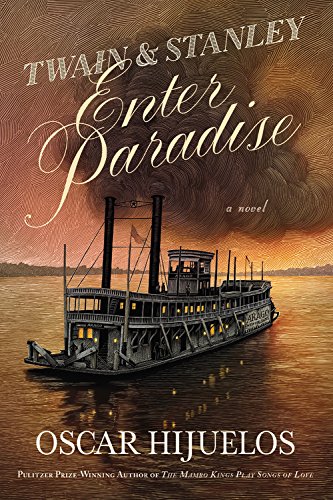Twain and Stanley Enter Paradise
In an interesting life-imitates-art twist, the widow of famed author Oscar Hijuelos was the force behind the posthumous publication of this, his final work, which in part describes the effort of the widow of famed author and explorer Henry Morton Stanley to posthumously publish his final work. The novel traces the long and unlikely friendship between Welshman Stanley and American Samuel Clemens/Mark Twain, which started when they were young unknowns and continued as they became two of the most famous authors in the English language. We get a more detailed look at Stanley, from his unhappy and impoverished childhood through the fame that started with his successful rescue of missionary David Livingstone and later exploration—many charged it exploitation—of the Congo for Belgium’s King Leopold, and finally a hard-won, bittersweet happiness with his wife, socialite and famed portraitist Dorothy Tennant, and their adopted son, Denzil. Hijuelos presents a man scarred by rejection and desperate to prove himself, in sharp contrast to Samuel Clemens, who seems forever comfortable in his own skin, even as life and his own poor financial choices deal him some heavy blows.
Though the novel was more than ten years in the making, it’s tempting to wonder whether Hijuelos considered it finished. The author fails to make his characters flesh and blood, instead holding everyone at arm’s length. It reads so much like a biography for the first two-thirds that there is a temptation to cry foul when the author finally ascribes thoughts or feelings to his subjects. A biography must demure on details not in the historical record, but Hijuelos chose to make these historical figures characters in a novel without offering his readers the intimacy a novel should provide. It is that lack of intimacy that makes this interesting work ultimately unsatisfying.










